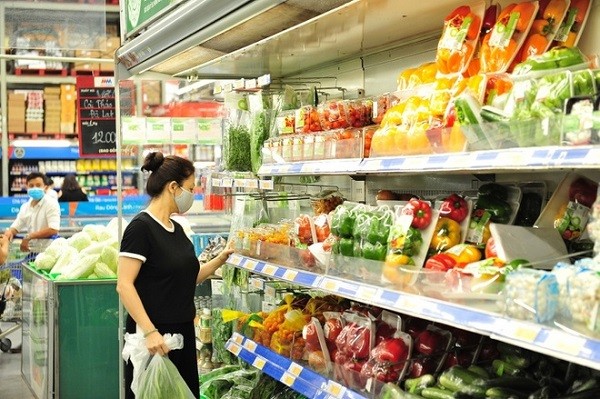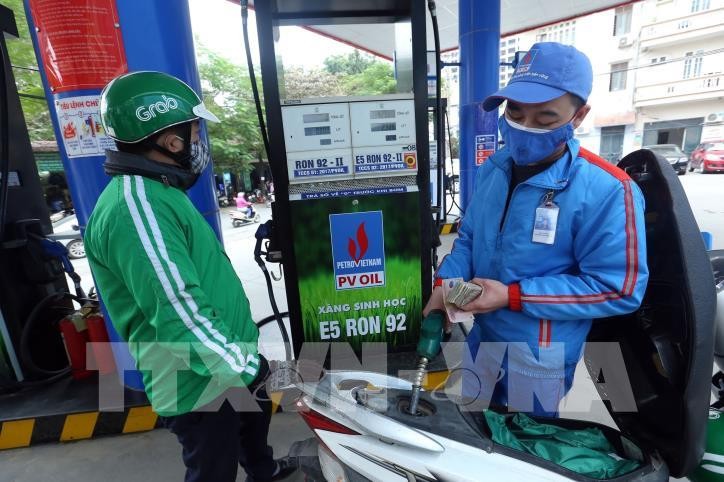
Inflationary pressure set to build up until year end
Latest
 |
| Inflation slows in the first quarter of 2022 thanks to price-stabilising efforts by the Government. (Source: VOV) |
Inflation slowing in Q1
Nguyen Thu Oanh, director of the Price Statistics Department under the General Statistics Office of Viet Nam, said that at the beginning of the year the Government requested ministries, agencies, and localities to synchronously implement solutions aimed at stabilising prices and limiting its negative impact on socio-economic development.
“Timely introduced policies including those on axing the value-added tax from 10% to 8%, halving the environmental protection tax on fuels, and reducing 37 fees and charges helped stabilize production and business, easing significant pressure on the market,” said Oanh in a recent interview granted to Dau Tu (Investment) newspaper.
According to the official, Viet Nam is typically affected by external factors as it has an open economy. However, its bailout package remains relatively small compared to similar packages adopted by other economies hit hard by COVID-19, meaning it does not put further pressure on inflation. In addition, people’s income has been continuously reduced over the past two years, leading to a low consumption demand.
Unlike people in developed countries that spend a lot on entertainment, tourism, transportation, housing, fuel, and other outings, people in emerging and developing countries spend a lot on education, health care, food, and daily necessities that often fuel the CPI.
“Viet Nam is no exception, but it still ensures an adequate supply of essential consumer goods, meeting people’s needs, so prices are stable,” Oanh analysed, adding that the Vietnamese CPI is not low compared with other countries in the region that have similar economic levels, such as Indonesia, the Philippines, and Malaysia.
 |
Inflationary pressure growing
Nevertheless, Oanh pointed out several unusual factors that could contribute to driving up the CPI this year.
“Normally, the CPI always increases very slowly, even decreases in the first months after the lunar New Year holiday compared to the previous months due to a decreasing demand. But it is a worrying sign that the CPI for March this year inched up by 0.7% - the highest increase in many years,” said Oanh.
Most of the 11 main groups of consumer goods and services, with the exception of food and catering services, have seen prices rise. Most notably, petrol prices spiraled by 48.81% in the first quarter, fuelling the overall CPI to increase by 1.76%. Indeed, March alone saw petrol prices soar by 13.44% over the previous month, causing the CPI to rise by 0.48%.
Most importantly, economic sanctions imposed by the US and western allies on Russia will certainly cause the supply of many key products in the global market to decrease sharply.
Russia is currently a leading exporter of oil, gas, and grain as raw materials for animal feed production, chemicals for fertilizer production, and iron and steel for many other production activities. A limited supply of these items will therefore push up prices, putting additional pressure on the import of these raw materials for domestic production and consumption.
“It is very difficult to keep our inflation at 4% as expected, as pressure is building up in the coming months till the end of the year,” said the statistician.
In order to rein in inflation, Oanh said that it is necessary to suspend the increase in prices of goods and services, including tuition and hospital fees.
“Relevant agencies should strictly keep the lid on the prices of raw materials, fuels and input materials in order to promptly prevent market manipulation, while simultaneously encouraging businesses and people to use domestic raw materials instead of imports,” she suggested.
She also underscored the importance of ensuring an adequate supply of petrol for local use, saying the State must develop scenarios to address any fluctuations in global oil prices which are forecast to continue to surge ahead over the coming months.

























